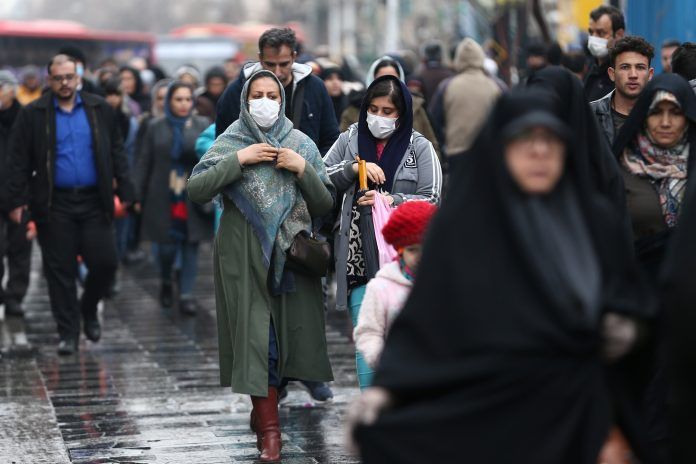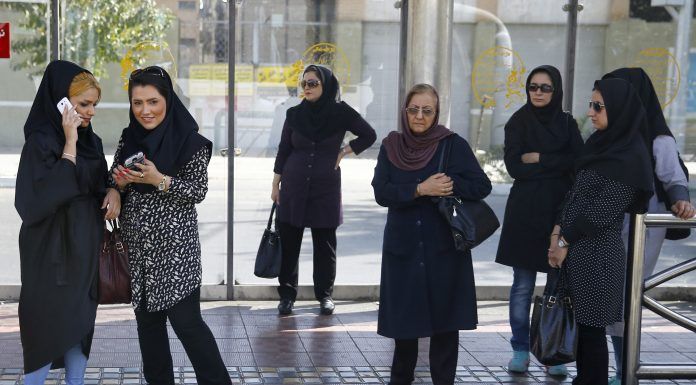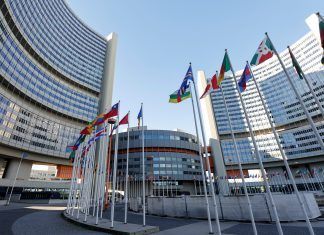By Kayhan Life Staff
At the request of Iran’s Vice President for Women and Family Affairs, Ensiyeh Khazali, the Administration and Recruitment Affairs Organization (ARAO) has issued remote work permits to female employees with small children.
“If many employees apply for the remote work scheme, priority should be given to women who are pregnant or have children younger than six years or children with special needs,” the directive said.
Although the ARAO directive was issued on Nov. 3, it was not published by the media until a day after President Raisi’s speech on Nov. 4, in which he said that women should not work night shifts in factories and “must be shown special considerations so that they can be with their husbands and children during those hours.”
Women have been the first victims of the economic downturn caused by the coronavirus pandemic. According to a report by the Statistical Center of Iran, female unemployment in Iran has continued to rise. The overall unemployment rate stood at 9.6 percent this summer, a slight improvement from last year. While male employment rose steadily since last summer, female employment fell. Some 177,000 women lost their jobs this summer.
The unemployment rate among women aged 18 to 35 was 27.8 percent from April through June, but it has risen to 37 percent since then, the report added.
In a letter dated Nov. 3, the women faction of the Majlis (Iranian Parliament) urged Mr. Raisi to issue a directive allowing women with children younger than six years old to work from home.
“Following the ratification of the latest guidelines by the National Headquarters for Coronavirus, the ARAO has canceled the remote work scheme,” the letter said. “However, the ARAO’s new directive is too broad and does not consider female employees with children younger than six who are in elementary school. It has created problems for many women, prompting people to contact their [Majlis] representatives.”
Speaking about the ARAO’s directive on remote work on Nov. 6, Ensiyeh Khazali said: “We have completed the groundwork for enabling women to telework and plan to extend the scheme even after the coronavirus has been eradicated.”
“The new government’s agenda includes promoting marriage, reducing the divorce rate, plans for the growing youth population, and urban renewal projects,” Ms. Khazali explained. “We will soon submit a comprehensive plan to Mr. Raisi for elevating women’s status in society.”
“We hope the current government will tackle issues that threaten the safety and wellbeing of women and families and address the low fertility rate and population problem,” Khazali said at a separate meeting last week. “The esteemed leader [Ayatollah Ali Khamenei] has highlighted ‘family’ and ‘chastity’ as principal issues concerning women. We hope to safeguard the dignity of women and families in our society which is targeted by the enemy constantly.”
During a recent trip to Semnan, capital of the north-central province of Semnan, President Raisi ordered factories and other industrial units not to put women on night shifts.
Many trade union representatives and civil rights activists worry that the remote work schemes may prompt many employers to hire primarily men, which will force more women out of the workforce.
Speaking to the Iranian Labor News Agency (ILNA), Samih Golpour, a labor union representative, said: “According to a survey by the labor force office and the Statistical Center of Iran’s census, published in spring of 2020, one of the main problems facing the job market is the significant drop in the number of women taking part in the economy.
According to the report, the number of men taking part in the Iranian economy matched the global average but was significantly lower for women. Research has shown a growing and vibrant economy must increase the number of women in the job market. Most official economic reports do not include data on gender inequality in the job market, which many employed women and those looking for jobs struggle with.”
In the past four decades, the Islamic Republic’s Family Protection Law and Children’s Protection Act have failed to protect women and children adequately. Domestic abuse, underage marriages, child labor, honor killings, and institutionalized and wholesale discrimination against girls and women are proof of a lack of will by the executive, legislative, and judiciary branches to correct these legal and social ills.
Broadening Iranian Women’s Rights: Georgetown Conference Discusses Strategies
Vice President Khazali’s two reformist predecessors, Masumeh Ebtekar and Shahindokht Molaverdi, failed to change the discriminatory laws and the status quo. It is highly likely that the hardline cabinet of President Ebrahim Raisi and his conservative Vice President for Women and Family Affairs, Ensiyeh Khazali, would implement policies that further marginalize women in society and the workforce.
Dr. Ensiyeh Khazali, a professor of Arabic Language and Literature at Alzahra University in Tehran, holds conservative political and social views. Khazali, who was married at 16, is a proponent of child marriages.
“There are 16-year-olds and 16-year-olds,” Khazali said in her first press conference. “There are 16-year-old [girls] who have gone through puberty and are intellectually mature.”
Khazali is reportedly a staunch opponent of the UNESCO’s 2030 Agenda, which aims to “ensure inclusive and fair quality education and promote lifelong learning opportunities for all by 2030.”






